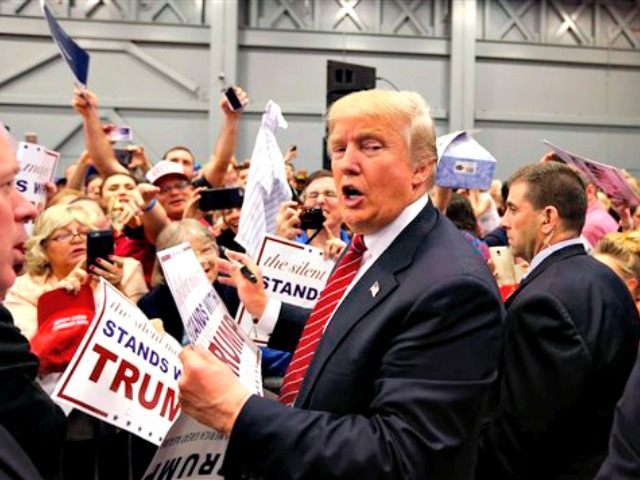The New York Times’ Ross Douthat argues that America’s political tradition of factional division-and-gridlock encourages a move by the GOP’s leaders and managers to unite against Donald Trump’s near-majority faction at the party’s Cleveland convention.
Americans speak and think in the language of democracy, and so these [majorities-deserve-to-win] arguments will find an audience, including among party leaders and delegates themselves.
But they cut against the deeper wisdom of the American political tradition. The less-than-democratic side of party nominations is a virtue of our system, not a flaw, and it has often been a necessary check on the passions (Trumpian or otherwise) that mass democracy constantly threatens to unleash.
That check has weakened with the decline of machines, bosses and smoke-filled rooms. But in many ways it remains very much in force — confronting would-be demagogues with complicated ballot requirements, insisting that a potential Coriolanus or a Sulla count delegates in Guam and South Dakota, asking men who aspire to awesome power to submit to the veto of state chairmen and local newspapers, the town meeting and the caucus hall.
The weird rigors of this process have not always protected the parties from politically disastrous nominees, like Barry Goldwater or George McGovern. But Goldwater and McGovern were both men of principle and experience and civic virtue, leading factions that had not yet come to full maturity. This made them political losers; it did not make them demagogues.
Trump, though, is cut from a very different cloth. He’s an authoritarian, not an ideologue, and his antecedents aren’t Goldwater or McGovern; they’re figures like George Wallace and Huey Long, with a side of the fictional Buzz Windrip from Sinclair Lewis’s “It Can’t Happen Here.” No modern political party has nominated a candidate like this; no serious political party ever should.
Because such figures speak — as Wallace did, and Long, and Ross Perot, and others — to real grievances, the process of dealing with them is necessarily painful, and often involves a third-party bid and a difficult reckoning thereafter. Trump would be no exception: Denying him the nomination would indeed be an ugly exercise, one that would weaken or crush the party’s general election chances, and leave the G.O.P. with a long hard climb back up to unity and health…

COMMENTS
Please let us know if you're having issues with commenting.